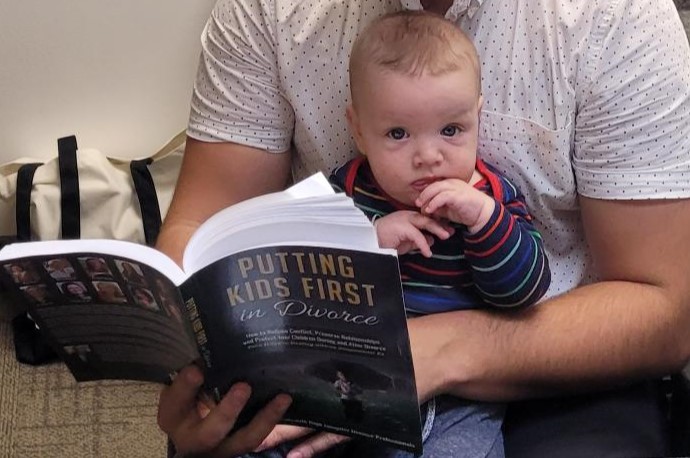The holiday season is a magical time filled with traditions, celebrations, and cherished family moments. However, for separated or divorced parents, Christmas can bring unique challenges. Co-parenting at Christmas requires thoughtful communication, planning, and flexibility to create meaningful experiences for children.
Here are some helpful holiday co-parenting tips to keep the season joyful and conflict-free:
1. The Spirit of Christmas: A Child-Centered Approach
At the heart of every holiday is the desire to create happiness and warmth for your children. Co-parenting during Christmas means shifting from focusing on individual preferences to prioritizing what’s best for your child.
Ask Yourself:
- How can I ensure my child feels loved and secure during the holidays?
- What traditions are most meaningful to them?
- How can both parents contribute to their holiday joy?
When you center your child’s happiness, it becomes easier to collaborate with your co-parent, setting aside differences for the holiday season.
2. Holiday Schedules: Plan Early and Stay Flexible
Scheduling is often a source of tension during the holidays. Avoid last-minute conflicts by planning early and being transparent about expectations.
Tips for Holiday Parenting Arrangements:
- Start Early: Discuss holiday schedules in advance to avoid surprises.
- Be Specific: Use written agreements or shared calendars to outline visitation plans, including pickup and drop-off times.
- Alternate or Split Time: Alternate holidays annually or share the day by splitting Christmas Eve and Christmas Day.
- Create Unique Celebrations: If logistics are challenging, celebrate Christmas on a different day—your children may even enjoy having “two Christmases”!
3. Communication: The Gift That Keeps on Giving
Effective communication is essential during emotionally charged times like the holidays. Keep your conversations child-focused and solution-oriented.
Helpful Communication Tips:
- Stay Neutral: Use respectful, calm tones and avoid inflammatory language.
- Use Co-Parenting Apps: Tools like OurFamilyWizard or Cozi can simplify communication and scheduling.
- Focus on Logistics: Keep discussions about what’s practical and beneficial for the children, not unresolved personal issues.
4. Gifts and Traditions: Collaborate to Avoid Competition
Gift-giving can be tricky when co-parents don’t coordinate. Collaborate to make the experience seamless and joyful.
Gift-Giving Strategies:
- Coordinate Presents: Discuss major gifts in advance to avoid duplication.
- Respect Each Other’s Traditions: Let your child experience both families’ holiday customs.
- Avoid Competition: Focus on meaningful experiences rather than outdoing each other with extravagant gifts.
5. Manage Emotional Challenges
The holidays can bring up strong emotions for both parents and children. Acknowledging and managing these feelings is essential for a joyful holiday season.
Tips for Emotional Well-Being:
- Support Your Child’s Emotions: Reassure them that it’s okay to enjoy time with both parents.
- Take Care of Yourself: Prioritize self-care and lean on supportive friends or professionals if needed.
- Keep Conflicts Private: Never involve your child in disputes or speak negatively about the other parent.
6. Build New Traditions
While preserving old traditions is comforting, creating new ones can bring added joy.
Ideas for New Holiday Traditions:
- Create a Holiday Journal: Write down favorite memories or drawings each year.
- Volunteer Together: Teach children about giving back by volunteering.
- Special Celebrations: Celebrate on a different day if needed—create unique traditions your children will look forward to each year.
7. The Role of Mediation in Holiday Co-Parenting
If scheduling disagreements arise, mediation can help resolve issues quickly and fairly.
How Mediation Helps Co-Parents:
- Facilitates Conversations: A neutral mediator helps both parents communicate effectively.
- Develops Clear Plans: Mediation results in detailed, enforceable parenting agreements.
- Improves Long-Term Communication: Mediation fosters cooperation beyond the holidays.
8. Final Thoughts: A Season of Giving and Collaboration
Christmas is about more than just presents—it’s about generosity of spirit. By giving your child the gift of cooperation and harmony, you teach them valuable lessons about love, respect, and resilience.
Approach the holidays with flexibility and an open heart, making your child’s happiness the top priority. When parents collaborate, the holiday season becomes brighter for everyone involved.
Ready for Holiday Co-Parenting Support?
At Panko Collaborative Law and Mediation, we are here to support you with parenting arrangements, holiday schedules, and conflict resolution while you navigate co-parenting at Christmas. Contact us today to learn how we can help create a peaceful holiday plan for your family.
Wishing you and your family a joyful, harmonious holiday season!
Do you want to read more about strategies for managing conflict during the holidays? Check out these articles:
Co-Parenting During the Holidays | The Gottman Institute
10 Helpful Tips for Co-Parenting During the Holidays | Modern Family Law
Navigating the Holidays When Co-parenting After Divorce | Kids in the Middle
Holiday co-parenting after separation or divorce | Carleton Newsroom





